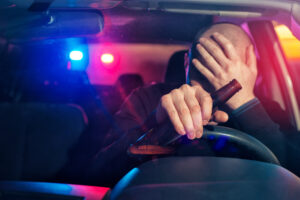Just because you have a drink or two that happen to contain alcohol, it doesn’t necessarily mean you are breaking the law if you then get behind the wheel of a car to drive. Most licensed drivers understand that the easiest way to avoid drunk driving is to fully abstain from alcohol before operating a motor vehicle. However, Pennsylvania law defines drunk driving by a .08 or higher blood alcohol content level.
 If a person’s BAC is .08 or higher, he or she cannot legally drive, and if that person does, a serious accident could take place. Perhaps, you or someone you know has been hit by a drunk driver. Such collisions are highly frustrating because they are easily preventable. There are numerous things a person can do to avoid intoxication, especially if he or she plans to drive a car.
If a person’s BAC is .08 or higher, he or she cannot legally drive, and if that person does, a serious accident could take place. Perhaps, you or someone you know has been hit by a drunk driver. Such collisions are highly frustrating because they are easily preventable. There are numerous things a person can do to avoid intoxication, especially if he or she plans to drive a car.
Preventative measures Pennsylvania drivers can take
Thinking ahead can help you avoid serious legal problems related to alcohol and driving on Pennsylvania roadways. If you think you’ll be tempted to get behind the wheel after consuming alcohol, you can hand your keys over to someone you trust ahead of time. In fact, you can leave your vehicle at home and ask a friend (who is not drinking) to drive.
Nowadays, there are numerous apps and services you can reach by phone to request a ride at a moment’s notice. If you drink and believe it’s best to leave your vehicle where it is, you can call a ride share service and request a driver. Better to have to go back and get your car the next day than to face a police officer in a traffic stop or cause a collision.
If a drunk driver hits you
You can’t always tell if there are drunk drivers nearby. While intoxication does often show itself by certain erratic behaviors in a driver, such as veering over the yellow line or clipping a curb on a bend, you might not notice any warning signs before a collision occurs. Even if you do notice potential danger, there’s no guarantee you can safely avoid a collision.
The sudden impact of a collision can cause life-threatening injuries. In fact, if your injuries are moderate or serious, you may wind up needing time off work to recover. Drunk driving collisions often prompt financial distress for recovering victims, which is why Pennsylvania law allows those who are injured by other drivers’ negligence to seek financial recovery for their losses in court.
